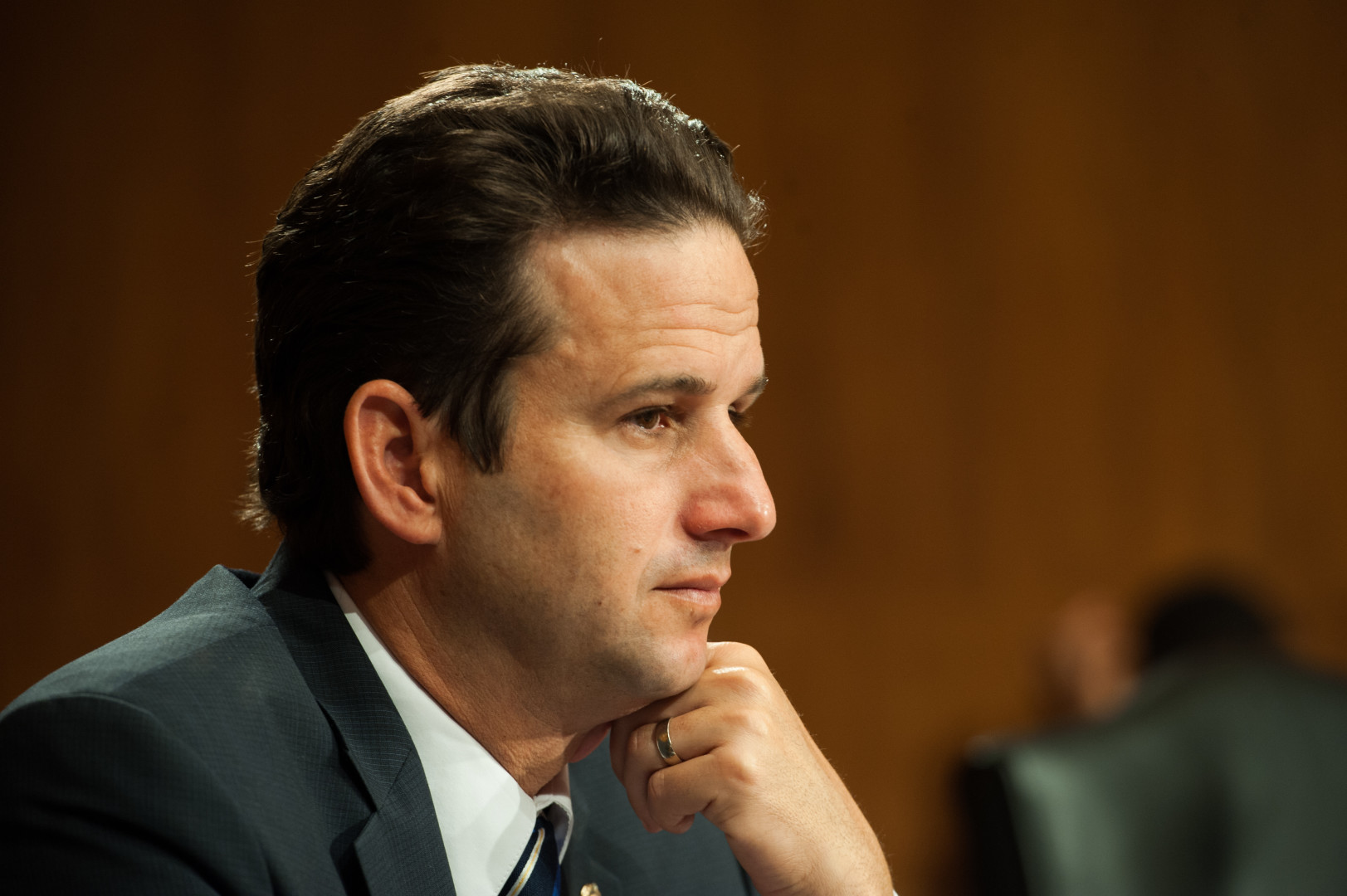Democrats are indicating they’re unlikely to hop on board with GOP-backed internet bill without assurances that the Federal Communications Commission will retain its ability to enforce consumer protections, foreshadowing a major sticking point in achieving a legislative compromise with Republicans.
Senate Commerce Committee Chairman John Thune plans to draft a bill that would codify the main components of the FCC’s 2015 Open Internet order. The South Dakota Republican told reporters on Tuesday that his legislation would prohibit paid prioritization and blocking or throttling of online content, an approach shared by Democratic lawmakers.
Sen. Brian Schatz (D-Hawaii), a fellow committee member, said he’s open to negotiating a net neutrality bill, “but only if it were in good faith and not a sort of Trojan horse for an attempt to undermine the authorities that the agency has.” He made those comments at the State of the Net conference in Washington on Monday.
Schatz agrees with Thune that Congress “should legislate in the area of net neutrality.” But he is dubious about the chances of success.
“It’s too polarized” at the moment, Schatz said. “The idea of just enshrining no blocking, no paid prioritization and all the original tenets of net neutrality in the statute and leaving the FCC with all of its existing authorities, we’re just not there.”
Open internet advocates are even more critical. “It makes no sense for Democrats to accept a narrower version of net neutrality that’s in that bill versus the current rules in exchange for gutting basic consumer protections,” Chris Lewis, vice president of the consumer advocacy group Public Knowledge, said in an interview Thursday.
Thune’s outline for internet law differs from the FCC’s net neutrality rule in that it does not reclassify internet service providers as common carriers under Title II of the Communications Act. “We just want to make sure that we stay away from rate regulation and other things that the commission could do under Title II reclassification,” Thune said Tuesday.
Republicans have vilified the reclassification of ISPs, but Democrats supported that revision because it gave the agency the jurisdiction to police consumer protections in the broadband industry. For example, the net neutrality rule gave the FCC the authority to update federal phone subsidies to provide low-income Americans with broadband. It also served as the legal basis for the agency to pass stronger privacy rules for ISPs.
That’s why Democrats are loathe to give up the Title II reclassification. “I would support net neutrality legislation so long as it upholds the same bright line rules adopted in the 2015 Open Internet order and preserves the FCC’s enforcement powers to protect consumers,” Sen. Richard Blumenthal (D-Conn.), a member of the Senate Commerce Committee, said Thursday in an email statement to Morning Consult.
“The biggest problem with [Thune’s] bill is that it strips the FCC of its authority to protect consumers on broadband,” Lewis said, citing the privacy rules and Lifeline update.
At the start of the 114th Congress, Thune circulated draft legislation similar to the measure he’s working on now. Thune told reporters Tuesday that he and Sen. Bill Nelson (D-Fla.), the committee’s ranking member, came “close” last year with the language in his discussion draft.
Nelson’s office said the senator was unavailable for comment.
Thune said that his year he has had “preliminary conversations” with Democrats regarding his forthcoming legislation.

